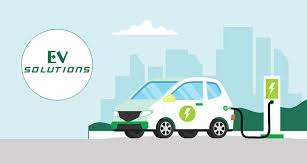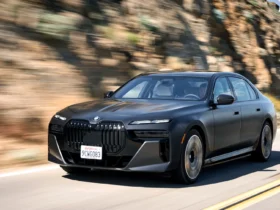As the world moves towards a more sustainable future, electric vehicle solutions are becoming increasingly pivotal in addressing environmental and energy challenges. The transition from traditional internal combustion engines to electric vehicles (EVs) represents a significant shift in how we approach transportation and energy consumption. At the heart of effective electric vehicle solutions lies the development of advanced charging infrastructure. Expanding and enhancing the network of public and private charging stations is crucial for supporting the widespread adoption of EVs. Fast-charging stations, which can recharge an EV battery to 80% in under 30 minutes, are particularly important for reducing range anxiety and making long-distance travel feasible. This infrastructure development is complemented by innovations in home charging solutions, such as smart chargers that can optimize energy use based on time-of-day pricing or renewable energy availability.

Another critical component of electric vehicle solutions is the advancement in battery technology. The performance, range, and cost-effectiveness of electric vehicles largely depend on the efficiency of their batteries. Recent developments in battery technology, such as solid-state batteries and improved lithium-ion cells, promise to enhance energy density, increase driving range, and reduce charging times. These advancements are essential for making electric vehicles more practical and appealing to a broader audience. Furthermore, research into recycling and repurposing used batteries addresses environmental concerns related to battery disposal and helps in creating a more sustainable lifecycle for EVs.
Smart grid integration is also a vital aspect of electric vehicle solutions. By connecting electric vehicles to the smart grid, we can optimize energy distribution and consumption. Vehicle-to-grid (V2G) technology allows EVs to return excess energy stored in their batteries back to the grid during peak demand times. This not only helps stabilize the grid but also provides potential financial benefits for EV owners. Additionally, integrating EVs with renewable energy sources, such as solar panels, can enhance the overall efficiency and sustainability of the energy system. For instance, a solar-powered home can charge an electric vehicle during the day when solar energy is abundant, reducing reliance on grid electricity and lowering overall energy costs.
Electric vehicle solutions also include advancements in vehicle-to-everything (V2X) technology, which enables communication between vehicles, infrastructure, and other road users. V2X technology can improve traffic management, enhance safety features, and optimize energy use by allowing vehicles to communicate with traffic lights and road sensors. This technology can lead to more efficient driving patterns, reduced congestion, and a lower overall environmental impact. Furthermore, innovations in autonomous driving technology are expected to complement electric vehicle solutions by improving the efficiency and safety of transportation systems.
Policy and regulatory support play a crucial role in the successful implementation of electric vehicle solutions. Government incentives, such as tax credits, rebates, and grants, help lower the initial cost of EVs and encourage their adoption. Additionally, regulations that mandate higher fuel efficiency standards and stricter emissions controls drive the automotive industry to invest in electric vehicle technology. Urban planning and development policies that support the installation of charging infrastructure and prioritize electric vehicle access in public transportation systems further enhance the viability and attractiveness of EVs.
The adoption of electric vehicle solutions is also supported by advancements in automotive manufacturing. Companies are increasingly investing in the production of electric vehicles and related components, leading to economies of scale that reduce costs and improve accessibility. Collaborative efforts between automakers, technology providers, and governments are essential for driving innovation and ensuring that electric vehicle solutions are effective and scalable.
In summary, electric vehicle solutions encompass a wide range of advancements and strategies aimed at making electric vehicles a viable and sustainable option for the future. From the development of robust charging infrastructure and cutting-edge battery technologies to smart grid integration and V2X communication, these solutions address key challenges and pave the way for a greener transportation system. Policy support and manufacturing innovations further enhance the feasibility and attractiveness of electric vehicles, driving their widespread adoption. As technology continues to evolve and integrate with other systems, electric vehicle solutions will play an increasingly crucial role in reducing environmental impact, improving energy efficiency, and shaping the future of transportation.


















Your point of view caught my eye and was very interesting. Thanks. I have a question for you. https://accounts.binance.com/ES_la/register?ref=T7KCZASX
I wanted to thank you for this great read!! I definitely enjoying every little bit of it I have you bookmarked to check out new stuff you post…
Thank you for your sharing. I am worried that I lack creative ideas. It is your article that makes me full of hope. Thank you. But, I have a question, can you help me?
Write more, thats all I have to say. Literally, it seems as though you relied on the video to make your point. You clearly know what youre talking about, why waste your intelligence on just posting videos to your site when you could be giving us something informative to read?
Wonderful work! This is the type of information that should be shared around the web. Shame on the search engines for not positioning this post higher! Come on over and visit my web site . Thanks =)
Your point of view caught my eye and was very interesting. Thanks. I have a question for you. https://accounts.binance.com/da-DK/register-person?ref=V2H9AFPY